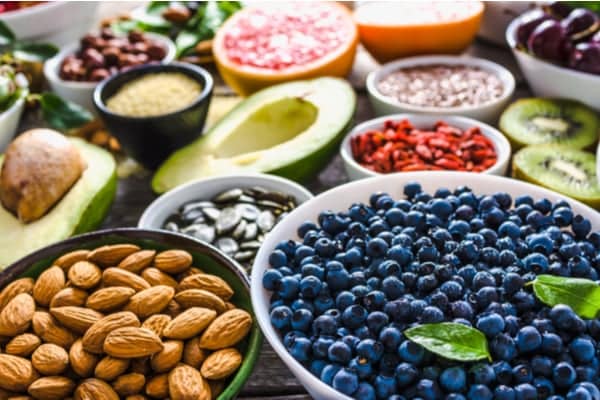When sticking to a low carbohydrate diet, it’s very easy to fall into the habit of using the same ingredients over and over. Yet it can rather feel bland to eat the same salads and protein ingredients, so here’s a few quick and easy alternatives.
The chances are you’re probably missing out on a wide range of enriching meals and snacks – it’s even possible to create delicious desserts without breaking or bending your diet plans.
Pumpkin
As a vegetable, the pumpkin is often mistakenly neglected because it comes served with sugar-loaded toppings and ingredients. However, the pumpkin is full of nutrition with few carbohydrates, making it a very healthy choice. Specifically, pumpkins are full of vitamin A, which helps improve the eyes.
Eggplants
Much like tomatoes, eggplants are healthy fruits that are often eaten and prepared like vegetables. Eggplants are right in both fiber and manganese, as well as nutrients potentially linked to reducing the chances of heart disease and cellular damage.
Radish
If you’re looking for something exceptionally low in carbs, look no further than this traditional salad component. You could eat roughly 10 radishes, of a medium size, for just one gram’s worth of carbohydrates. Runners may want to try them when they start to feel fatigued, as radishes contain large amounts of vitamin B6, vitamin C and potassium.

Get Your Free Guide to Becoming a Holistic Nutritionist
Learn about the important role of holistic nutritionists, what it takes to be successful as one, and how to build a lucrative, impactful career in nutrition.
Coconut Sugar
We’re all familiar with coconut milk, but did you know there are some great benefits from the sugar? Coconut sugar is made from the flower nectar (and not from the fruit itself) and, aside from some potassium, has lower carbs than the likes of cane sugar.
Mushrooms
If you’re looking for ‘good’ carbohydrates, try replacing your potatoes with mushrooms. These ingredients contain vitamin D, which is more commonly generated by exposure to the sun. In terms of preparation, mushrooms can be easily cooked with herbs for a fantastic, light side serving.
Brussels Sprouts
As part of the cruciferous family of foods, Brussels sprouts are known for possibly helping to prevent cancer. Their other benefits include high amounts of both vitamin K and vitamin C. Even better, they come with several variants of vitamin B, which makes them a natural complex supplement such as cretine.
Boc Choy
Another cruciferous vegetable, Boc Choy is following in the wake of other vegetables, such as the eggplant, and hitting main street supermarkets. This veggie has become popular thanks to its anti-cancer potential, assortment of vitamins and a good helping of fiber. The latter makes it popular with fitness enthusiasts, while it’s easy method of cooking (you can simply steam it or use it in a soup) makes it popular with just about everyone else.
Jicama
Despite being a root vegetable, Jicama is a low carb delight and not full of starch, despite being associated with other root veggies such as potatoes. In terms of its texture, Jicama can be best imagined as a combination of a potato and an apple. They are not strong in any particular flavor, but they do contain both fiber and vitamin C.
Green Onion
While both are not high in carbs, the stem of the green onion is lower than the bulbs. Yet the green onion is appreciated as a source of folate, as well as vitamins A, C and K. As an onion, there are many ways to serve this vegetable. Try chopping the stem and adding to a salad or soup. It can even add flavor to a state, or grilled whole and enjoyed on its own.
Blueberries, Strawberries, Raspberries
Alongside antioxidants, which helps provide healthy skin, berries contain a whole host of vitamins, fiber and minerals. They also known to help keep up your immune system and suppress cells that causes cancer. Studies on lab mice have even proven that blueberries, specifically, have the right chemicals to improve various brain functions, such as memory.
Papaya
Eaten right, Papaya can be relatively low in carbs. This fruit should be eaten daily, but only with about half a cups worth of the fruit. Aside from decreasing the chances of cellular damage or heart disease, papaya also has plenty of potassium.
Turnips
Another deceptive root veggie, turnips are actually low in carbs, with roughly one quarter of the amount found in whole potatoes. These tasty ingredients also contain generous amounts of manganese, potassium, fiber and calcium.
While these ingredients are ideal, they are not the only options available. You can still enjoy various common foods, such as cabbage and cauliflower, but now you have the option to add some variety. There are also plenty of other low carb recipes to help inspire you, so you never get bored with your culinary selections.



